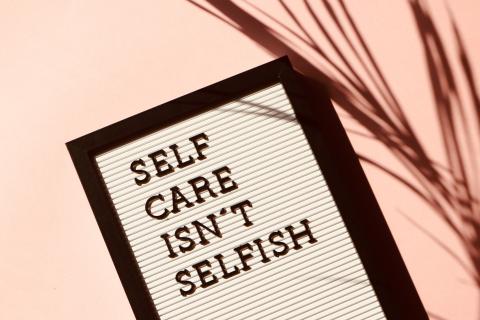College Students and Mental Health
Jan 25,2023
“Mental health” seems to be a term that is thrown around often, particularly after the pandemic. As the world rapidly evolved and changed to match the dire circumstances surrounding us, it seems the way that people approached life also began to adapt. Terms like “mental health,” “work-life-balance” and “quality over quantity” began to surface more and more on the news and on the internet, showcasing the increasingly obvious fact that people’s priorities had shifted. People around the world, particularly the younger generation, seemed to be turning inwards and asking themselves big picture questions about life—perhaps for the first time. It seems that we have entered a “mental health movement” in the modern day, but what does that really mean?
Let’s examine the meaning of mental health. If one were to search this terminology on the internet, the first definition they would stumble upon is the one provided by the CDC, which reads “...mental health includes our emotional, psychological, and social well-being. It affects how we think, feel, and act. It also helps determine how we handle stress, relate to others, and make healthy choices.” It would seem, by that logic, that mental health doesn’t merely stand for “feeling good,” but rather addresses a holistic “wellness” of a person’s whole being, as most of their body, activities, and—by extension–lifestyle are a direct result of how well they tend to their mental health.
College students have always faced specific challenges like stress, deadlines, grade requirements, cramming for exams, education or job prospects beyond their current level of schooling, etc. However, most of these challenges (at least in recent times) took place in a relatively calm environment, with the world at large providing a consistent and unassuming background to this “healthy” stress. However, the modern world has provided a new range of challenges, from global illnesses to safety issues within classrooms, to even something as simple as rapidly rising tuition costs–all issues that have surfaced very quickly, with little to no resources available in the time necessary to truly make an impact. Students feel lost, adrift in a sea of problems with no solutions. It’s easy to see how many people in this age group can become disillusioned with their circumstances and how this can severely affect their overall well-being, and why they would search for the answers to help themselves.
The modern world has also provided opportunities that haven’t been explored as much in the past. Namely, people have become more curious about the field of mental health, which has become increasingly more accepted and less stigmatized in society. It makes perfect sense that the very generation who is suffering greatly from disenchantment with the world around them and unusually high stressors would focus more than previous generations on improving their mental health in an unabashed fashion. When it comes to caring for oneself in a holistic sense and prioritizing one’s well-being, it seems we can all learn a thing or two from this current generation–and look forward to their position as the leaders of tomorrow.





